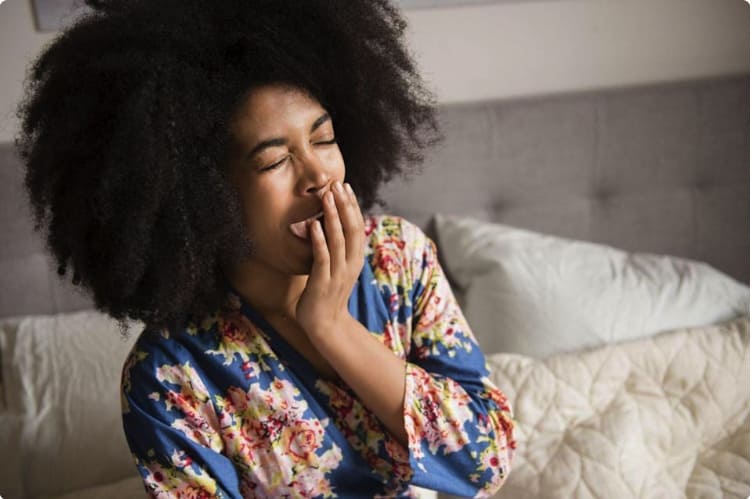Getting the proper amount of sleep and mental health are closely connected. Sleep deprivation affects your psychological state and mental health. And those with mental health problems are more likely to have insomnia or other sleep disorders. Americans are notoriously sleep-deprived, but those with psychiatric conditions are even more likely to be yawning or groggy during the day. Sleep problems are particularly common in persons with anxiety, depression, bipolar disorder, and attention deficit hyperactivity disorder (ADHD); and can contribute to the onset of dementia.
The brain basis of a mutual relationship between sleep and mental health is not yet completely understood. But neuroimaging and neurochemistry studies suggest that a good night’s sleep helps foster both mental and emotional resilience, while chronic sleep deprivation sets the stage for negative thinking and emotional vulnerability.
How sleep affects mental health
Every 90 minutes, a normal sleeper cycles between two major categories of sleep — although the length of time spent in one or the other changes as sleep progresses.
During “quiet” sleep, a person progresses through four stages of increasingly deep sleep. Body temperature drops, muscles relax, and heart rate and breathing slow. The deepest stage of quiet sleep produces physiological changes that help boost immune system functioning.
The other sleep category, REM (rapid eye movement) sleep, is the period when people dream. Body temperature, blood pressure, heart rate, and breathing increase to levels measured when people are awake. Studies report that REM sleep enhances learning and memory and contributes to emotional health — in complex ways.
Although scientists are still trying to tease apart all the mechanisms, they’ve discovered that sleep disruption — which affects levels of neurotransmitters and stress hormones, among other things — wreaks havoc in the brain, impairing thinking and emotional regulation.
The treatment recommendation for the most common sleep problem, insomnia, is a combination of lifestyle changes and behavioral strategies.
Lifestyle changes. Most people know that caffeine contributes to sleeplessness, but so can alcohol and nicotine. Alcohol initially depresses the nervous system, which helps some people fall asleep, but the effects wear off in a few hours and people wake up. Nicotine is a stimulant, which speeds heart rate and thinking. Giving up these substances is best but avoiding them before bedtime is another option.
Physical activity. Regular aerobic activity helps people fall asleep faster, spend more time in deep sleep, and awaken less often during the night.
Sleep hygiene. Many experts believe that people learn insomnia and can learn how to sleep better. Good “sleep hygiene” is the term often used to include tips like maintaining a regular sleep-and-wake schedule, using the bedroom only for sleeping or sex, and keeping the bedroom dark and free of distractions like the computer or television. Some experts also recommend sleep retraining: staying awake longer in order to ensure sleep is more restful.
Relaxation techniques. Meditation, guided imagery, deep breathing exercises, and progressive muscle relaxation (alternately tensing and releasing muscles) can counter anxiety and racing thoughts.
Cognitive behavioral therapy. Because people with insomnia tend to become preoccupied with not falling asleep, cognitive behavioral techniques help them to change negative expectations and try to build more confidence that they can have a good night’s sleep. These techniques can also help to change the “blame game” of attributing every personal problem during the day on lack of sleep.
I hope these tips will guide you on the way to a good night’s sleep.
Excerpts from Harvard Mental Health Letter: Sleep deprivation can affect your mental health | Published July 2009

